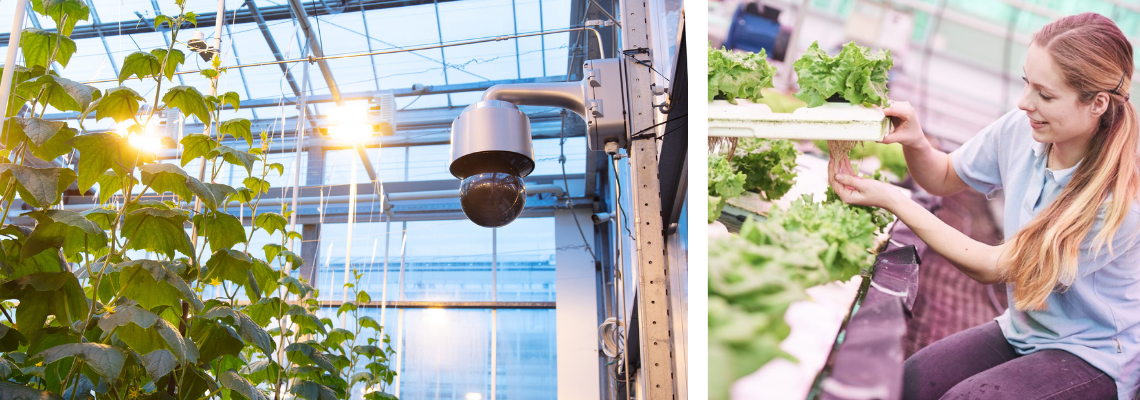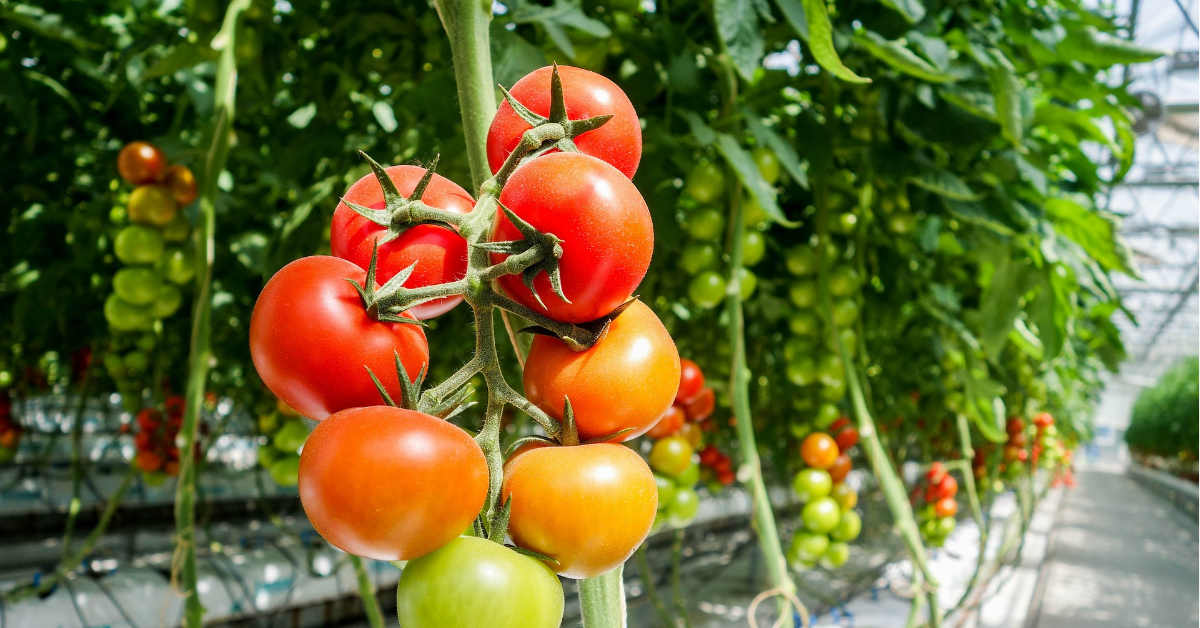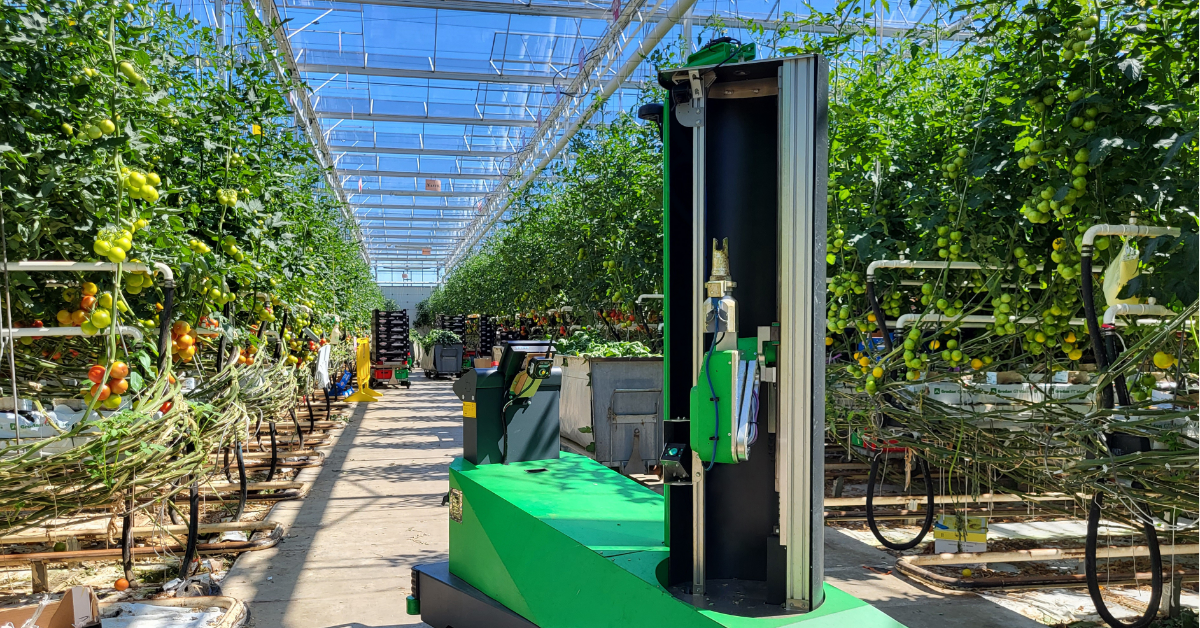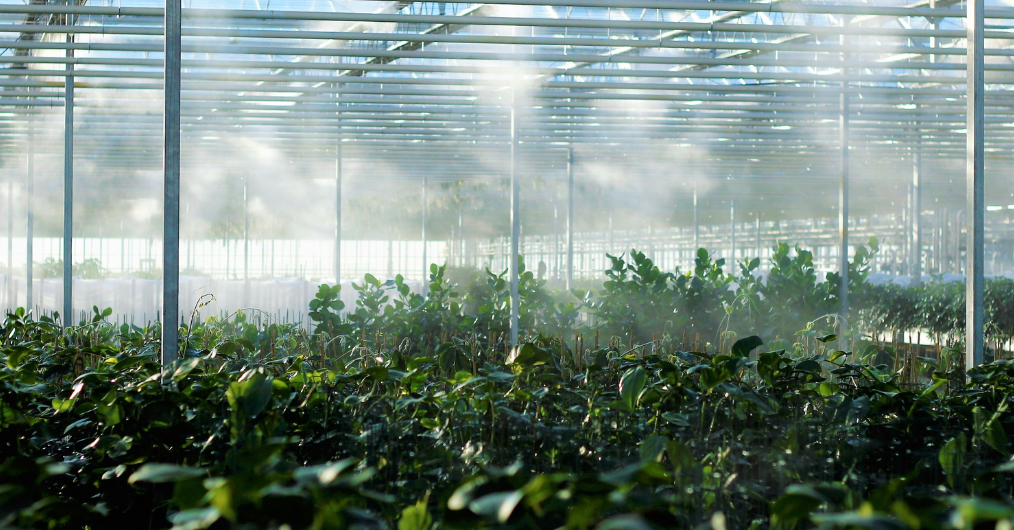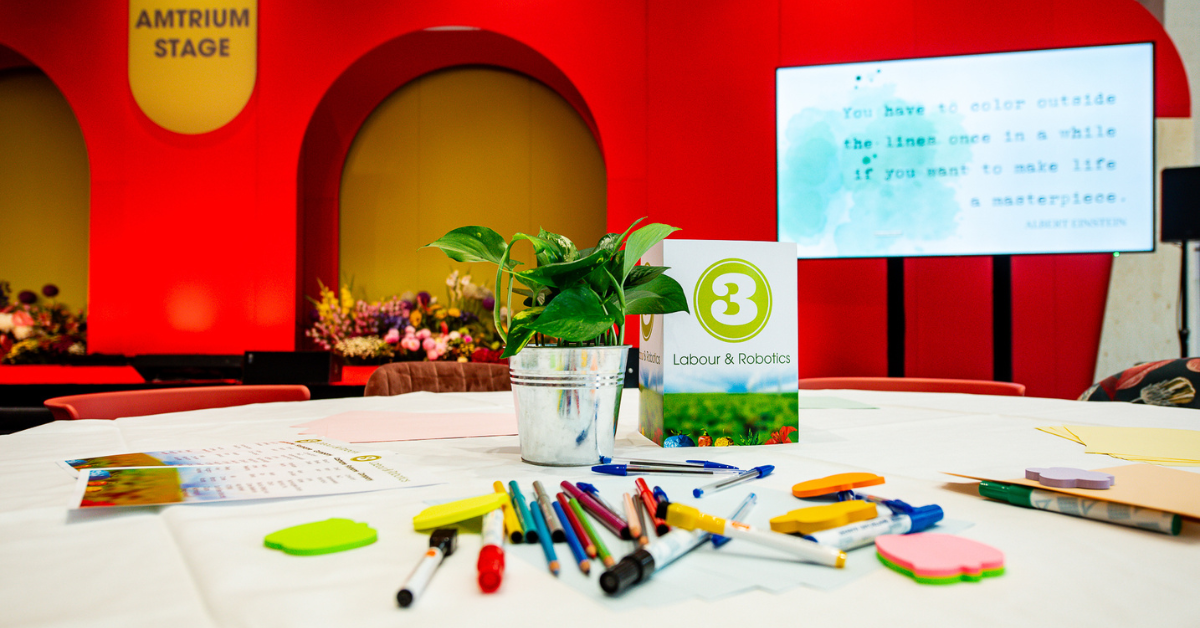‘Autonomy is to empower growers, not to replace them’
After two editions of the Autonomous Greenhouse Challenge, it has now been demonstrated that autonomous cultivation and Artificial Intelligence (AI) have great potential within international horticulture. Developments are going fast. Both Wageningen University & Research and Delft University of Technology believe in the added value of these technologies. However, they do not believe that the grower will eventually become redundant. In fact, cooperation with growers is desperately needed to actually make autonomous developments a success.
Wageningen University & Research has been working on autonomous greenhouses, climate control, crop modelling, use of sensors, data, intelligence, computer vision and robotics for years now. New technologies and new algorithms were developed for and together with the industry. During the Autonomous Greenhouse Challenge, those technologies are used and tested in practice. It is therefore a very educational competition, both for researchers and for the industry.
Cameras measuring growth
This year the 3rd edition of the international challenge will take place, carried out at Wageningen University & Research and sponsored by Tencent and David Wallerstein (CXO Tencent). This year’s edition will focus on the sustainable growth of lettuce in greenhouses. Different international teams will again participate, but there are new rules, says Silke Hemming, head of the scientific research team greenhouse technology at Wageningen University & Research. “In the previous editions the teams were allowed to use human decisions too, this time that is not allowed and the participants have to grow completely autonomously. What we want to find out is whether you can actually grow completely autonomously without human intervention. And can you fully objectify and quantify crop observations in this way, for example by having cameras measure growth?”
According to Hemming, it is important that growers collect more and more data. “You can only learn using data. Provided it is recorded by calibrated and good quality sensors, data is more objective than human observations. People measure differently on Monday morning than on Friday afternoon and human A measures differently than human B. It is therefore important to measure all important parameters objectively with sensors so that quantitative data becomes available.” Autonomous growing can help growers make decisions, Hemming believes. “A grower's decisions are complex: what should I do to get a certain production at a certain time, what influence does the weather have, what greenhouse climate should I maintain, which crop operations are useful, how many leaves should I prune, what is the optimal stem density, what are the costs for my energy and so on. Models and data can help to gain insight, to predict and perhaps to steer autonomously in the future.”
Make the life of growers easier
In 2020 team AuTomatoes convincingly won the 2nd Autonomous Greenhouse. The team achieved the highest net profit using the least amount of input. In addition, the jury rated their AI strategy as the best. To this end, the team applied the principles of Plant Empowerment in their algorithms to optimally support the plant balances and to achieve a balanced and powerful crop. To do so, it was important to generate as much reliable data as possible. Tamas Keviczky and Neil Yorke-Smith were part of team AuTomatoes. They are both professors at Delft University of Technology. Yorke-Smith is an Associate Professor of Socio-Technical Algorithmics, while Keviczky is specialized in all sorts of control systems. “The use of autonomous technology and AI should make the life of growers easier, that’s the main goal”, says Yorke-Smith. “It should help growers to focus on the strategic area and less on controlling things like the temperature in the greenhouse and the irrigation. To ultimately achieve even better results.” It is therefore a misconception to think that autonomous growing will make the role of growers smaller in the future, Yorke-Smith believes. “Autonomy is to empower growers, not to replace them. We want to find out how humans and technology can work together.”
Tamas Keviczky agrees. “In addition, autonomous cultivation can make a valuable contribution to making horticulture more sustainable through more efficient use of water and energy. In the Autonomous Greenhouse Challenge, we have shown that major steps can be taken in this area, and we have proven that it is possible to automate. It's not a moonshot that requires international cooperation, but it is a realizable goal that requires acceptance and cooperation of the stakeholders. Companies that sell these systems have to open up and learn to collaborate and also growers need to reach out and help to objectify knowledge. Every grower knows best, and they have every right to say so. They have been in the business for a long time and have been successful. But if they agree to the shared goal of trying to automate things and to develop new tools to support that, then they also have to help to objectify the knowledge they have. It requires willingness from both sides to make progress, but I truly believe we can achieve this goal.”
AI, machine learning and deep learning
Keviczky and Yorke-Smith believe there are many ways in which Delft University of Technology can contribute to that. “I am personally working on control algorithms and optimization tools”, says Keviczky. “It’s about combining sensor data with a model to come up with real-time decisions. Besides that, we are working on AI methods, machine learning and deep learning. Robotic manipulation is another area in which we operate, and we are also developing new sensors that can provide more information about the plant and the soil. Further, we are looking at other ways to get data, like drones and we are focusing on bioinformatics, which is important when you are trying to understand things in biology and genetics. Indirectly this also concerns autonomy, because if your plants behave more predictively, you can run the greenhouse more efficiently. In that case, you don’t need to keep such a narrow band of climate conditions to make the plant happy and you can afford to deviate more. In order to achieve sustainable production, we are also working on optimization of resource usages, such as energy and water.”
Consortiums of growers and developers
Liselotte de Vries, business developer at Delft University of Technology says it’s practically possible to create anything for every sector at the University. “But we need to know what the industry needs. How frequently does a certain measurement has to take place in a greenhouse, for example. What determines a high-quality tomato: is it flavour, is it colour, is it taste? We can develop very interesting new technologies and sensors, but we need to know the exact parameters. Therefore, we always work with consortiums of growers and technology developers. We don’t bring products to market ourselves, but we are willing to share our knowledge in a consortium. And as a University, we also train people, so they can bring new knowledge to the field.”
Fully autonomous growing is not yet an option in practice, says Silke Hemming of Wageningen University & Research. “When you talk about semi-autonomous or data-driven, this is very different. There are growers who believe that they can do it better themselves and that autonomous growing is not the future and there are growers who would like to take the next step and want to experiment with autonomous growing. You can compare it to the self-driving car. There are people who would like to have one and see all the benefits of it and there are those who prefer to shift gears and have the wheel in their own hands. Acceptance will therefore be a major challenge in the coming years, although this may go quickly under pressure from an increasing lack of horticultural knowledge.”
Share your horticulture technology stories with us
Do you have an innovation, research results or an other interesting topic you would like to share with the international horticulture technology industry? The GreenTech website and social media channels are a great platform to showcase your stories!
Please contact our Brand Marketing Manager Murkje Koopmans.
Are you an GreenTech exhibitor?
Make sure you add your latest press releases to your Company Profile in the Exhibitor Portal for free exposure.
Have exclusive horticulture technology news delivered to your inbox
The GreenTech monthly newsletter brings you the latest exclusive horticulture technology news and updates about our global horticulture technology trade shows and events.
Join over 32,000 of your peers and receive:
☑ Exclusive commentary from industry leaders
☑ The latest news from the GreenTech team
☑ Stay up to date with all the latest news about our events

